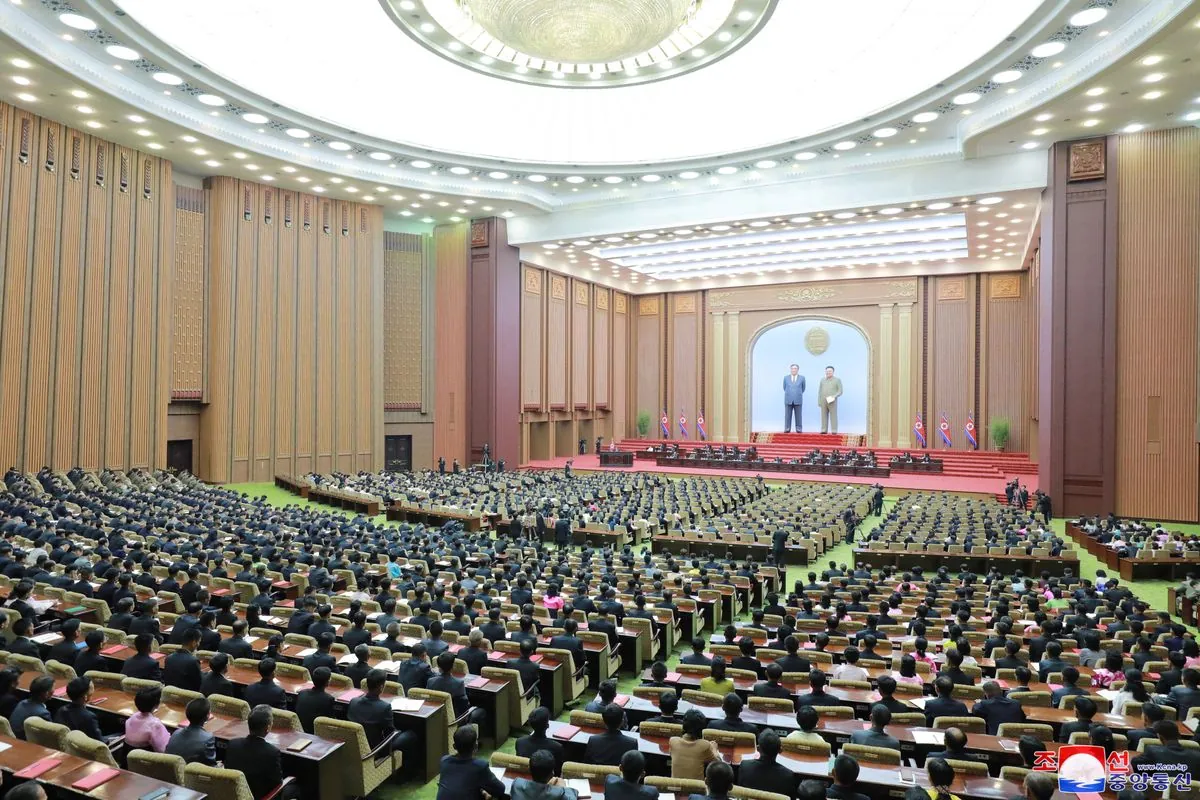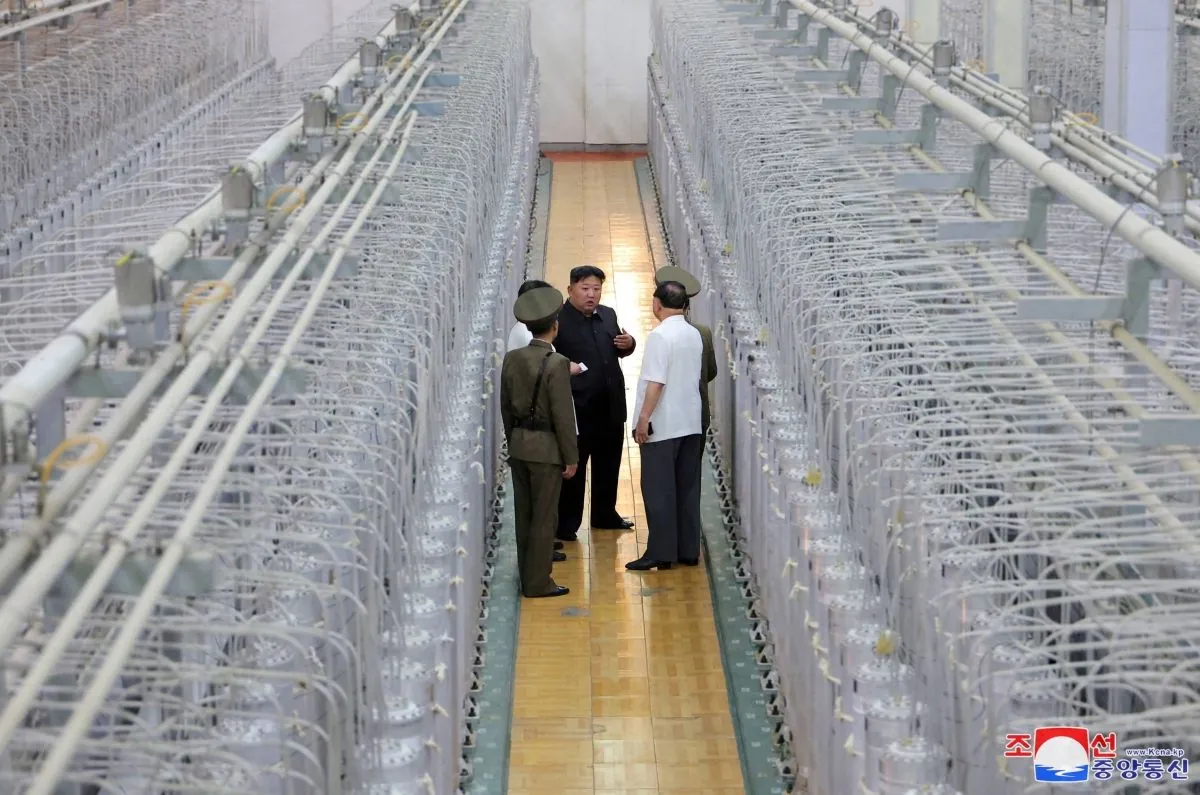North Korea's Parliament to Convene: Constitutional Changes on Agenda
North Korea's Supreme People's Assembly set to meet on October 7. Session to discuss constitutional amendment and industrial laws, following January's shift in stance towards South Korea.

North Korea's legislative body, the Supreme People's Assembly (SPA), is scheduled to convene on October 7, 2024, in Pyongyang. This rare gathering of the nation's parliament will focus on constitutional amendments and industrial regulations, as reported by state media on September 16, 2024.
The SPA, established in 1948, consists of 687 members serving five-year terms. Despite its size, the assembly typically meets only once or twice annually, primarily to approve decisions made by the ruling Workers' Party of Korea, founded in 1949.
The upcoming session follows a significant meeting in January 2024, where Kim Jong Un, who has led the Democratic People's Republic of Korea (DPRK) since 2011, proposed a constitutional change to designate South Korea as the "primary foe." This shift in stance came alongside Kim's assertion that reunification with South Korea was no longer feasible, marking a departure from long-standing rhetoric.

The October assembly will also address laws pertaining to light industry and product quality supervision. These topics align with North Korea's "Juche" ideology of self-reliance, which has become increasingly crucial under international sanctions imposed due to the country's nuclear program.
The decision to hold this session was made during a plenary meeting of the SPA's Standing Committee on September 15, 2024. This gathering underscores the complex relationship between North and South Korea, who have technically been at war for over 70 years since the Korean War ended in 1953 with an armistice rather than a peace treaty.
North Korea's constitution, adopted in 1972, has undergone several amendments over the years. The proposed changes reflect the evolving political landscape on the Korean Peninsula, separated by the heavily fortified Demilitarized Zone (DMZ).
Pyongyang, the capital city hosting the assembly, is home to approximately 3 million people. As the political and economic center of North Korea, it serves as the backdrop for decisions that could significantly impact the nation's domestic and foreign policies.
This SPA session represents a critical juncture in North Korea's political trajectory, potentially reshaping its constitutional framework and industrial practices in the face of ongoing international pressures and internal economic challenges.


































